Healthy Eating for Older Adults
No matter what age we are, maintaining a healthy diet is essential, but this will become an even more concerning issue once we approach the retirement age. Good nutrition may not only help you maintain a healthy body, but it could also contribute to a more optimistic mindset and help you maintain emotional equilibrium.
A healthier diet and improved mental and physical well-being are always possible, regardless of age or historical eating patterns. Making changes today to improve your diet may assist you to:
Improve your independence and longevity. A healthy diet helps strengthen the immune system, protect against chemicals that might cause sickness, help maintain a healthy weight, and lower one's risk of cardiovascular problems, strokes, hypertension, type 2 diabetes, bone resorption, and tumors. In addition to engaging in physical exercise, maintaining a healthy diet may also help you maintain or regain your autonomy as you become older.
Enhance your intellectual capacity. Older adults who consume foods rich in omega-3 fatty acids, such as seafood and nuts, as well as fresh fruits and vegetables with leafy greens, might be capable of increasing their attention and reducing their chance of developing Alzheimer's disease. For example, green tea which is high in antioxidants could help improve cognition and mental sharpness as you become older.
It doesn't matter how old you are; it's critical to maintain a diet that's rich in a variety of foods, including fruits and vegetables, good sources of protein, starchy carbohydrates, fiber, and good fats. If you are over 65 years old, it may be beneficial to pay a bit more attention to your eating habits — continue reading to learn more about this.
How to adopt a nutritious diet for the elderly
As you get older, your body requires more natural, less processed foods—foods that are as near to their original state as possible to contribute to optimal health. Due to the fact that our genes and other aspects of our health might cause our bodies to react to various kinds of food in different ways, it might take a little more time for you to discover the healthy eating plan that is most suitable for you. The following suggestions are an excellent place to get started:
Fruit and vegetables
Colorful fruit and vegetables are an excellent way to boost your daily intake of antioxidants, which may help keep your skin, hair, and nails healthy. Try to get in two to three servings each day. Select veggies that are strong in antioxidants, such as lettuce, chard, and asparagus, as well as brightly colored ones like beets and pumpkins, when it comes to your diet. To enhance the flavor of vegetables, cook them in a skillet with minced garlic or pepper flakes, drizzle them with sesame oil, or sprinkle them with cream cheese.
Various sources of protein
Consuming an adequate amount of high-quality protein may, as you become older, elevate your moods, increase your resilience to pressure, sadness, and despair, and even assist you in thinking more effectively. However, consuming an excessive amount of protein from over-processed foods such as hot dogs, ham, and sausage could raise the risk of cardiovascular diseases, cancers, and other physical ailments. Increase your consumption of soybeans, lentils, eggs, almonds, and seeds to diversify your protein intake rather than only depending on red meat.
Fish is not only a fantastic supply of nourishment but it is also a quick-to-digest protein. Two meals of fish should be consumed per week, preferably oil-rich varieties such as mackerel, trout, salmon, or sardines when feasible. Both canned sardines and canned salmon are ideal choices since the bones in these fish are digestible and offer an additional source of calcium.
Be careful with carbs
Select whole grains rather than refined white flour to increase the amount of minerals and fiber in your diet, and reduce the amount of sugar and processed carbohydrates you consume. As we become older, our sensations of taste and aroma become less acute. However, we keep the capacity to differentiate between various types of sweet flavors most of the time. This causes many elderly individuals to take more sugar and processed carbs than is ideal for their health. Refined carbohydrates, on the other hand, could cause a substantial rise in blood sugar, accompanied by a quick crash that makes you feel hungry and makes you more likely to binge eat.
Necessary vitamin D
Because the production of vitamin D is triggered by the exposure to sunlight on the skin, it is recommended that individuals spend at least half an hour a day in the sunlight unprotected. However, if you are going to be outside for a longer period of time than this, you should take precautions to prevent sun damage to your body.
Increase fiber intake
Fiber is important for maintaining proper bowel movements and may also help reduce the chances of developing type 2 diabetes and cardiovascular problems. The Institute of Medicine suggests that persons over the age of 50 should consume about 30 grams of fiber every day if they are males and about 20 grams of fiber each day if they are females. As you raise the amount of fiber you consume, you should also be certain to consume lots of water.
Stay hydrated
If you aren't making an effort to acquire your daily need of 6-8 cups of water, you are doing yourself a disservice. You don't have to limit yourself to pure water; dairy, sugar-free sodas, and even coffee and tea contribute. However, keep in mind that caffeine increases the rate at which urine is excreted by the kidneys.
Pick good fat
Instead of attempting to eliminate fat from your plate, concentrate on increasing your consumption of beneficial fats, such as omega-3 fatty acids, which may help strengthen your immune system against illness while also enhancing your moods and cognitive performance.
Calcium for bone health
Consuming a proper amount of calcium is essential to ward off osteoporosis and other bone diseases as you get older and sustain the good movement. Milk, yogurt, cheddar, and other dairy products as well as non-dairy alternatives including soy, cauliflower, walnuts, and kale are all excellent suppliers of calcium.
Cut down on sugar
Sugars that have been processed include a high number of calories but no other nutrients of worth. You should gradually cut down on the number of sugary meals you consume and substitute them with whole meals that are inherently sweet, such as fruit and sweet vegetables. Before adopting any changes to your nutrition plan, it is important to discuss the matter with your family physician.
Following a diet that is rich in all of the essential nutrients mentioned above if you want to sustain your health as you become older. It may assist you in maintaining a decent weight, keeping you active, and providing the nourishment that your body requires. If elderly folks want to preserve their wellness, it might be more helpful for them to modify their dietary habits than to engage in strenuous physical exercise.
Recommend Products
-
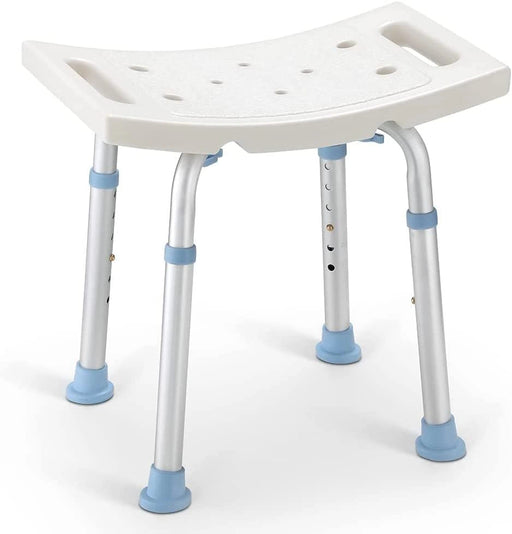 Sale
Sale
Standard - 300LBS Capacity Shower Stool
Original price $51.99From Original price $28.99Original price $51.99Current price $28.99From $28.99Current price $28.99OasisSpace Medical Square Shower Stool for Bathtub OasisSpace Square Shower Stool for Bathtub is approved as the highest standard(FDA) for medical...
View full detailsSaleOriginal price $51.99From Original price $28.99Original price $51.99Current price $28.99From $28.99Current price $28.99 -
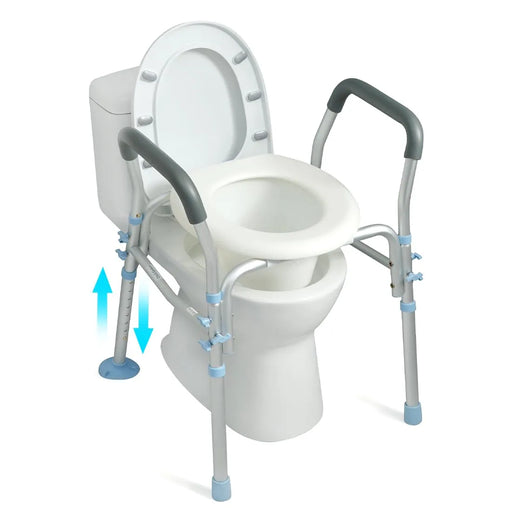 Sale
Sale
300LBS Capacity Raised Toilet Seat with Arms
Original price $120.99From Original price $69.99Original price $120.99Current price $69.99From $69.99Current price $69.99OasisSpace Raised Toilet Seat with Arms - Safe and Convenient OasisSpace Raised Toilet Seat with Arms provides stable support for users to sit dow...
View full detailsSaleOriginal price $120.99From Original price $69.99Original price $120.99Current price $69.99From $69.99Current price $69.99 -
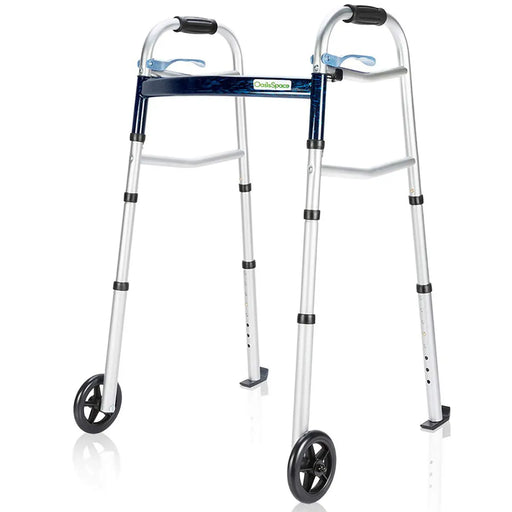
350LBS Capacity 2 Wheel Walker
From Original price $39.99Original price$39.99From $39.99Current price $39.99Product Advantages OasisSpace's 350LBS Capacity walker offers a fusion of lightweight design and sturdy support, crafted from high-grade anodized ...
View full detailsFrom Original price $39.99Original price$39.99From $39.99Current price $39.99 -

Wall Mounted - 400LBS Capacity Teak Folding Shower Seat
From Original price $131.99Original price$131.99From $131.99Current price $131.99Advantages OasisSpace Teak Wall-Mounted Shower Seat adopts a folding design, which can save space to the greatest extent and can be folded up at a...
View full detailsFrom Original price $131.99Original price$131.99From $131.99Current price $131.99 -
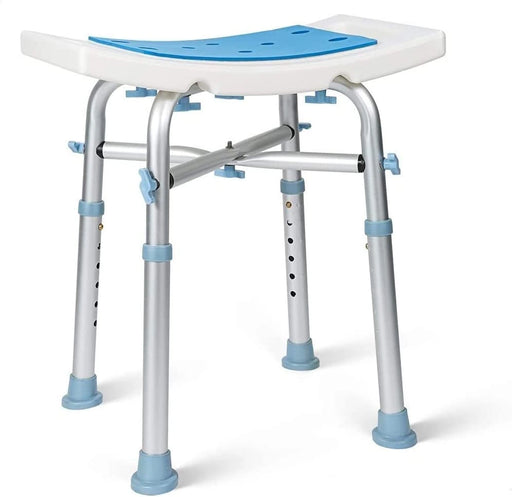 Sale
Sale
Padded & Bariatric - 500LBS Capacity Heavy Duty Shower Stool
Original price $57.99From Original price $36.99Original price $57.99Current price $36.99From $36.99Current price $36.99OasisSpace Medical Heavy Duty Bariatric Shower Stool OasisSpace Medical Heavy Duty Bariatric Shower Stool is approved by the FDA, which is the hig...
View full detailsSaleOriginal price $57.99From Original price $36.99Original price $57.99Current price $36.99From $36.99Current price $36.99 -
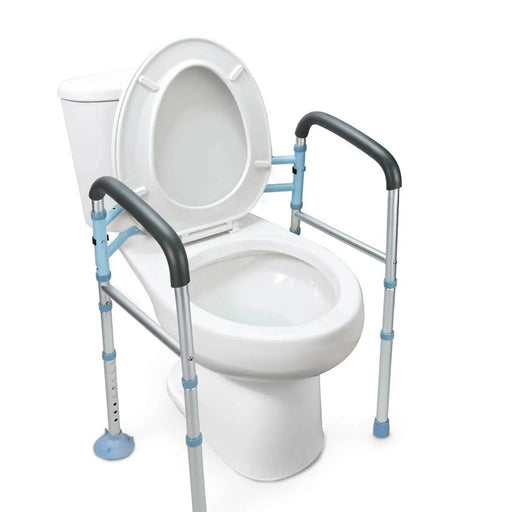 Sale
Sale
300LBS Capacity Stand Alone Toilet Safety Rail
Original price $69.99From Original price $55.99Original price $69.99Current price $55.99From $55.99Current price $55.99OasisSpace Toilet Safety Rails - Fit Any Toilet OaisSpace stand-alone toilet safety rails provide sturdy support for the elderly and people with ...
View full detailsSaleOriginal price $69.99From Original price $55.99Original price $69.99Current price $55.99From $55.99Current price $55.99







